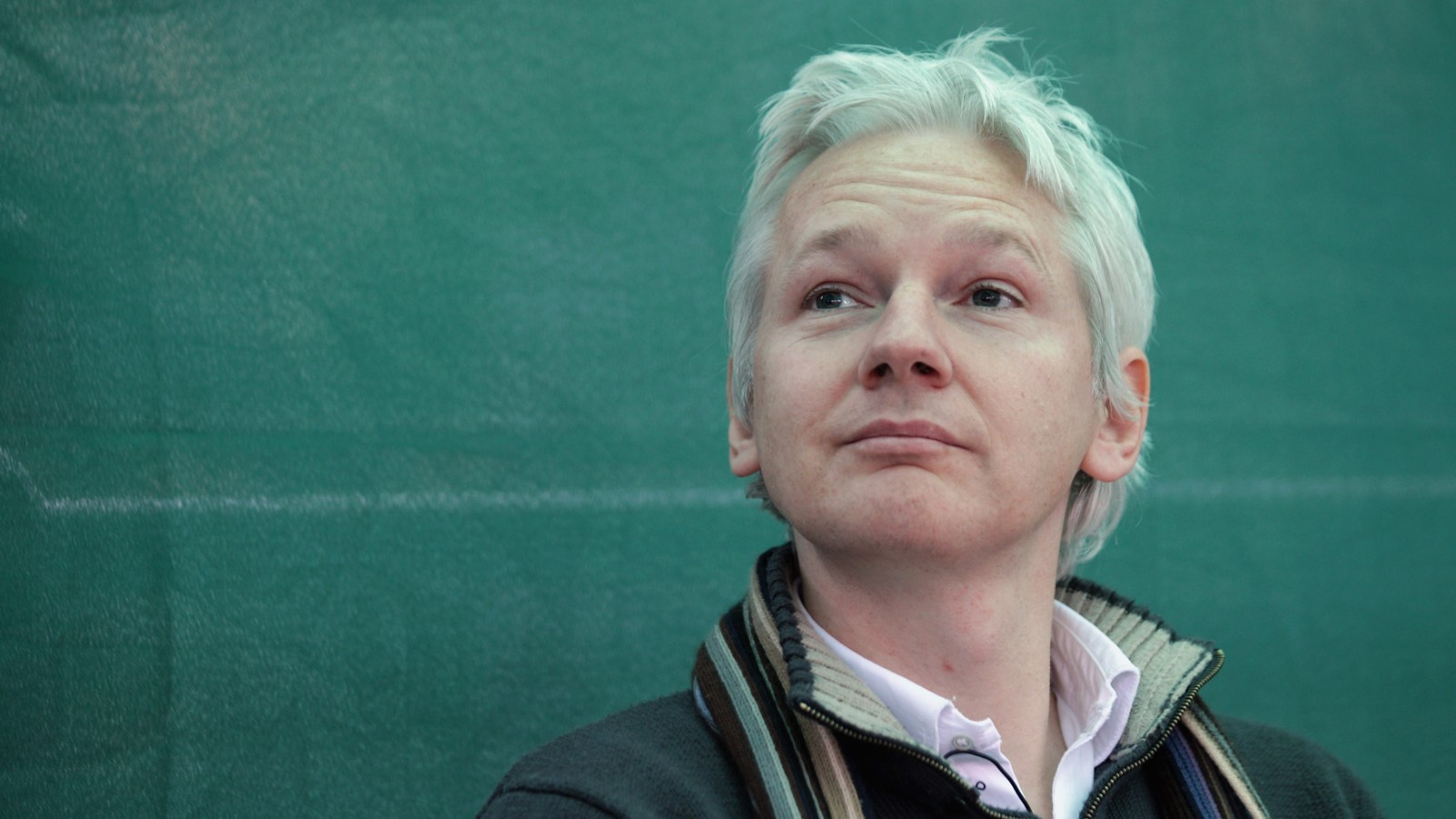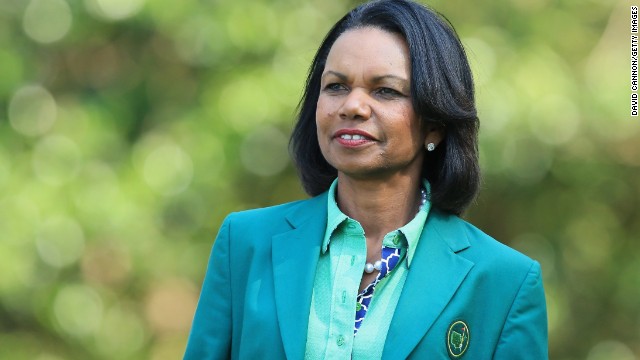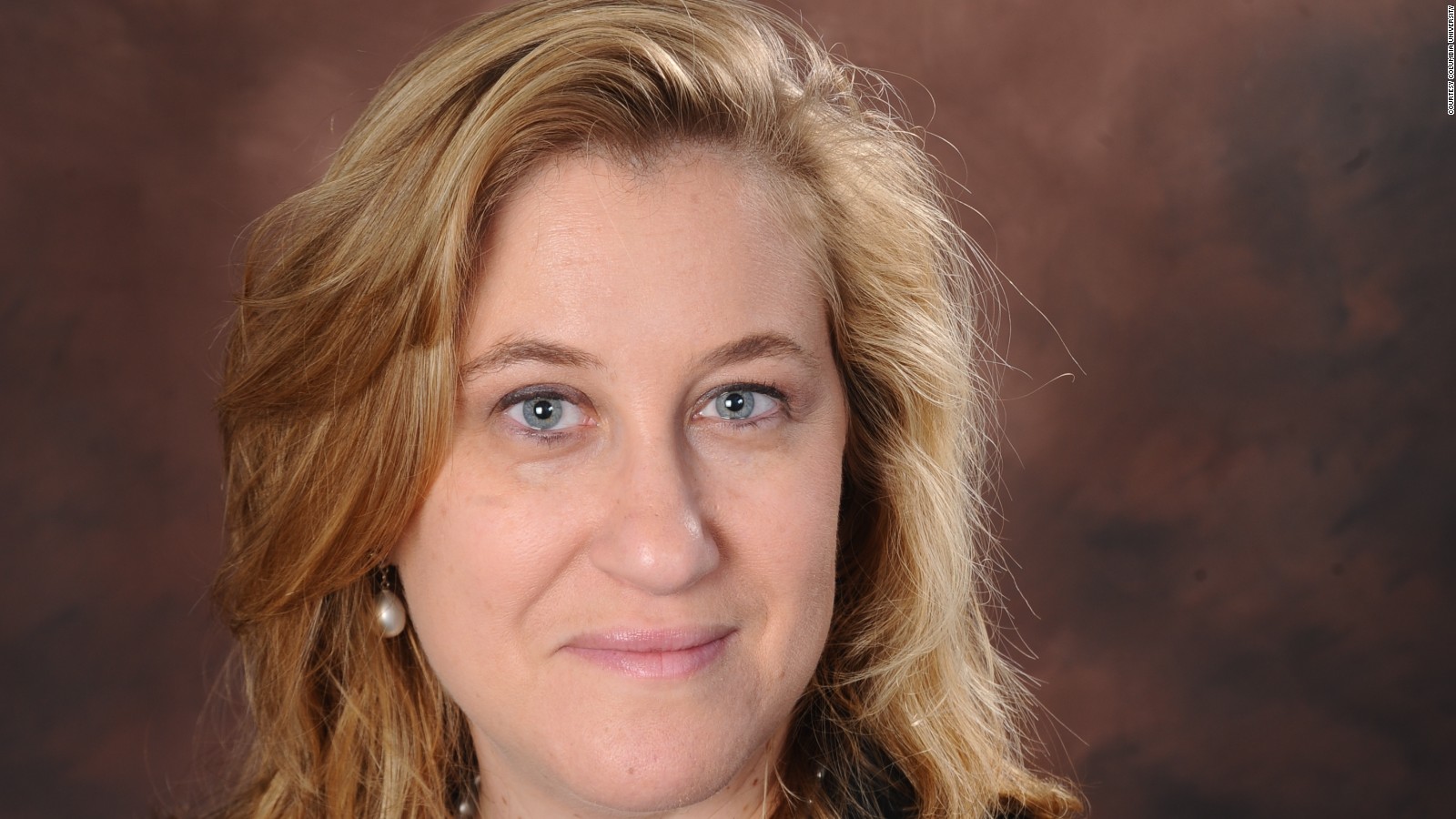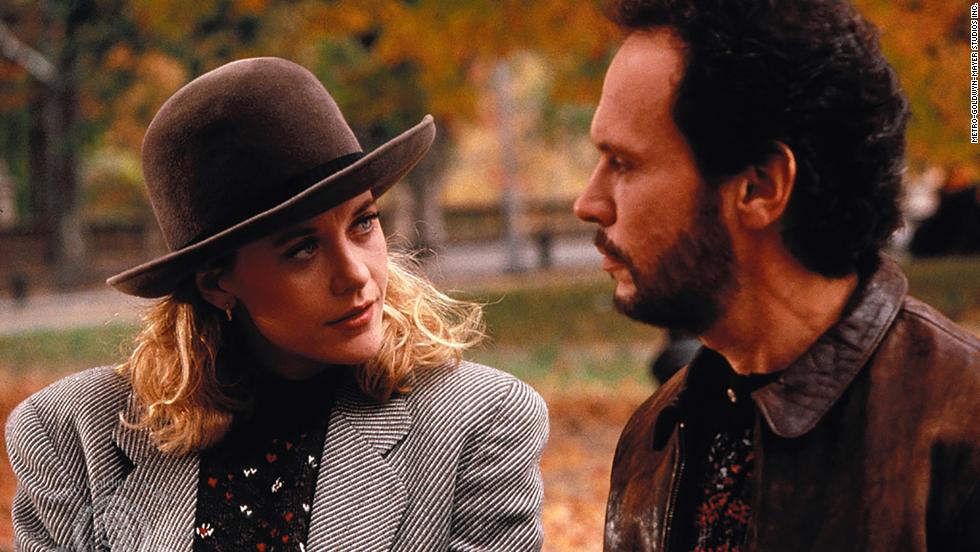
Birth date: July 3, 1971
When he was a year old, his mother married Brett Assange, who adopted him.
2006 - WikiLeaks is founded by Assange.




Only 14 female chefs from other countries were awarded two and three stars before her, including Elena Arzak, for her namesake restaurant in San Sebastian, and Clare Smyth from Restaurant Gordon Ramsey in the United Kingdom.
And chef she is. Period.
She was also outraged.
In her eyes, that extra word -- female -- was unnecessary and irrelevant. Creating a separate category for women only served females even more so than the male-dominated industry had already done.

Dominique Crenn, the first female chef in the US to be awarded two Michelin stars.
Courtesy Jordan Wise/Crenn Dining Group
The menu at her flagship spot has a strong focus on seafood and vegetables. Through preparations such as sea urchin and geoduck tart or wagyu butter on brioche, Crenn's dishes evoke the memories of her time in Brittany, blending upscale French technique with fresh, California ingredients. It continues to improve each year -- earlier this May, Crenn won her first James Beard award for "Best Chef: West."
"Love and respect for art and poetry drive the dining experience at Dominique Crenn's high-style restaurant," wrote "San Francisco Chronicle" restaurant critic Michael Bauer in a 2017 review.
"The tagline is 'poetic culinaria,' and the menu consists of dramatic verses. You're left wondering what lines like 'Watching the beast rest beneath the leaves' or 'There came a wave of an oceanic delicateness' mean — until the beautifully manicured and whimsically conceived combinations arrive."
By all accounts, the stars in 2012 put her on the map. And in the years since, she has used that recognition for good: to develop a platform upon which she has become one of the food industry's most vocal activists.
Michelin-star chef Dominique Crenn spent some time in Northern Spain visiting the wineries the Basque region is known for.
Whether to spearhead philanthropic efforts, buy ingredients directly from Central American farmers, or create opportunities for -- and become a strong proponent of -- like-minded women in her field, she has taken seriously her role as more than just a chef. And she recognizes that it's not just her talent -- but the acknowledgment of said talent -- that has provided her with those opportunities.
Though her status as "the first" placed her gender at the forefront with the Michelin Guide -- which started doling out stars to restaurants nearly a century ago -- the award felt different to Crenn. Michelin is less a competition, she explains, and more a guide that lets you know what to expect based on the rating.
"The guide doesn't necessarily mean that a three-star is better than a one-star. It's just about how the restaurant is set up," Crenn says, and with Atelier Crenn's rise from two to three stars, it appears that the Michelin Guide has finally recognized the restaurant's set-up as deserving of three stars.
Diners at Atelier Crenn will be presented with a fully developed wine program and expert hospitality in an elegant, thoughtfully designed interior. This is all in addition to the polished, modernist French cuisine offered in a multi-course tasting meal. An experience, not just a meal.
"The Michelin Guide, for me, it's my history," she says.

This colorful dish made of kampachi, almond butter and nectarines can be found at Petit Crenn.
Courtesy Petit Crenn
Raised just outside of Paris, Crenn spent much of her childhood visiting the coastal region of Brittany, where her parents had grown up in farming families. Both rural and on the water, she describes it as a rustic, magical place, where she gained an appreciation for fresh, local ingredients and good food. And dining out during her young life was common.
"My father's best friend was a food critic, so I went with them to eat everywhere," she recalls. "Going out to restaurants was just part of the culture in France."
She cites those meals, and that region, as chief among her earliest influences, though at the time she had no plans to become a chef.
After studying economics and international business at university, Crenn moved to San Francisco and worked a series of odd jobs -- French tutor, babysitter, marketing -- before falling in with the local restaurant crowd. It wasn't until she worked the line at the infamous Stars Restaurant when she was 26 that Crenn was truly hooked.
"We had to create the dishes," recalls the chef, explaining that it was up to the commis' -- prep cooks, essentially -- to come up with their own menu items with help from the sous chefs. "You got to go back to your own heritage. That was very powerful to be able to create something personal at such a young age."
It informed what she would eventually do at Atelier Crenn, which she opened in 2011 after running kitchens around the world, from New York to Jakarta, Indonesia. A year later, she would get the Michelin stars.

Smoked caviar and monkfish foie gras with a hint of creme fraiche found at Atelier Crenn.
Courtesy Kremi Arabadjieva/Crenn Dining Group
Yet Crenn admits that achieving recognition comes with a responsibility: to use the platform in a positive way to affect change.
"I'm in an industry that has a lot to do with humanity," says Crenn, who describes what she's doing as much about activism as it is about feeding people. "When you have food, you have people, when you have people, you have to think about the planet. Food defines your society, how humanity is going to be."
Crenn believes that she has landed in perhaps the most important industry in the world: one that touches almost every field and issue -- politics, farming, labor, climate change. And, of course, discrimination.
"We're cooking, we're growing, but we have to be talking. We have to be out there and have a voice."
She traveled hours through the mountains to go directly to the farmers, to help plant trees for coffee and cacao. Working in partnership with Pan American Development Foundation, Crenn felt it necessary to see exactly where aid was actually going. Now, she buys that coffee to use in her businesses.
And when the fires broke out in Northern California this past Fall, Crenn -- whose farm in Sonoma was miraculously untouched as flames blazed around it -- was among the first to spearhead relief efforts for her neighbors by coordinating chefs to cook for displaced workers.
But perhaps the best use of her voice goes back to that whole female thing. She works hard to lift up and promote women. There's a huge imbalance, she says, that despite the #metoo movement, is not shifting quickly enough.
"See, that tells you people are interested, not because we are women, but because of the voice we are bringing out there."
A voice that is, among other things, necessary and relevant -- no matter the category.
Stacey Lastoe contributed additional reporting to this story.





CNN's Shawn Nottingham, Chuck Johnston and Matthew Hilk contributed to this report.

Spending rose for more than half of taxpayers during the first three years after claiming Social Security, according to a report based on tax data and analyzed by economists at the Investment Company Institute and the IRS.
Those with lower incomes were most likely to be spending more than they were pre-retirement. Middle-income earners spent about the same, and the higher-income earners spent slightly less.
The report didn't measure actual spending, but how much income an individual had left after taxes. It included salary and wages, Social Security benefits, and distributions from retirement accounts and pensions.
"For many individuals, retirement appears to be a multi-year transition rather than an action taken at a discrete point in time," the researchers wrote.
In fact, nearly half of people were still working three years after claiming Social Security.
Related: How do I know how much I'll need in retirement?
But this doesn't mean spending won't slow later in retirement, researchers said.
Of course, your spending could drastically fluctuate from year-to-year, especially if you plan to be retired for 30 years or longer. (Most people followed in this report claimed Social Security at age 62.)
It's tough to save for a moving target, but there is one rule of thumb experts recommend. It suggests people prepare to spend about 70% of your pre-retirement income in retirement.
People expect to spend less because they're no longer saving for retirement and your tax bill is likely to drop. Maybe your transportation costs will fall if you're no longer commuting to work. Or you could have your mortgage paid off.
But on the other hand, you'll have more time to travel and might spend more money on leisure activities -- which could be more likely in the beginning of your retirement.
Calculator: Will you have enough to retire?
The median taxpayer's spendable income at three years after claiming Social Security was 103% of their income from one year before collecting, the report said. It followed individuals from 1999 to 2010.
from CNN.com - RSS Channel https://ift.tt/2zAuFNb
Interestingly enough, 44% of workers aged 50 and over think their living expenses will stay the same once they leave their careers behind, according to the Nationwide Retirement Institute.
At the same time, 34% expect their living costs to decrease, while 22% expect them to go up. The question is: Who's right?
Without a crystal ball, it's impossible to say what your expenses will entail as you age. But it's pretty safe to assume that many of your current bills will remain mostly the same, such as groceries, clothing, utilities, and other such basics that all of us need regardless of whether we're working.
Now keep in mind that the cost of these items is likely to rise over time because that's just how inflation works. But inflation aside, you can probably use the amount you're spending pre-retirement as a benchmark for what you'll spend during your golden years.
You may even come to find that some of your costs go down in retirement, such as transportation. Imagine you no longer need a second vehicle to commute to work and can therefore unload that expense. Between your car payment, insurance, maintenance, and fuel costs, that's some nice savings right there. Unfortunately, transportation might be your only expense that goes down substantially.
Now let's talk about housing, because that one is iffy. Your housing costs might go down in retirement if you pay off your mortgage while you're still working, but property taxes have a tendency to climb over time, and as your home ages, it's bound to require more maintenance and repairs. Therefore, while you might unload your mortgage payment itself, the amount you spend to keep that home standing could wipe out any associated savings. On the other hand, you also have the option to downsize, which would allow you to cut your housing expenses and give you a bit more breathing room.
But while many of your living expenses might dip slightly or stay the same in retirement, two that are likely to rise are none other than healthcare and leisure. It's estimated that the average 65-year-old man today will spend $189,687 on healthcare in retirement. For the typical 65-year-old woman, that total climbs to $214,565.
And since retiring means having more free time on your hands, it stands to reason that you might increase your leisure spending to keep yourself occupied. But don't kid yourself — those museum outings, local plays, and early-bird specials can quickly add up. That's why you're best off assuming your living costs won't drop significantly in retirement and preparing accordingly.
Most seniors need roughly 80% of their previous earnings to live comfortably in retirement, and that tells us that the majority won't see much of a drop in their living costs. After all, financial experts these days are urging workers to set aside 15% to 20% of their earnings for the future, and that's great advice. If we back out that 15% o 20%, an 80% income replacement target fits just right.
Furthermore, 46% of seniors spend more money, not less, on living costs during their first two years of retirement, according to the Employee Benefit Research Institute. For 33% of seniors, that habit continues for six years into retirement.
The punchline, therefore, is that you need to be prepared financially for the costs that lie ahead, keeping in mind that Social Security will only pick up a portion of that tab. The good news, however, is that if you save consistently throughout your career, or make a major catchup effort later on, you can accumulate enough wealth to cover your expenses and avoid the financial stress so many of today's retirees face.
If you have another 35 years of work ahead of you and commit to setting aside $500 a month for the future, you'll end up with roughly $1 million if your investments generate an average annual 7% return during that time (more than doable with stocks).
If you're older, you'll need to go big. Max out a 401(k) at the current annual $24,500 limit between the ages of 50 and 70, however, and you'll be sitting on that same $1 million come retirement.
Related links:
• Motley Fool Issues Rare Triple-Buy Alert
• This Stock Could Be Like Buying Amazon in 1997
• 7 of 8 People Are Clueless About This Trillion-Dollar Market
Though it's hard to get a handle on what your exact living costs will be in retirement, don't assume they'll magically shrink. Err on the side of caution, and with any luck, you'll wind up with plenty of money to cover whatever bills eventually come your way.
from CNN.com - RSS Channel https://ift.tt/2P88p20

CNN's Angela Barajas, MaryLynn Ryan, Tina Burnside and Alex Medeiros contributed to this report.
from CNN.com - RSS Channel https://ift.tt/2Q3DTeY
